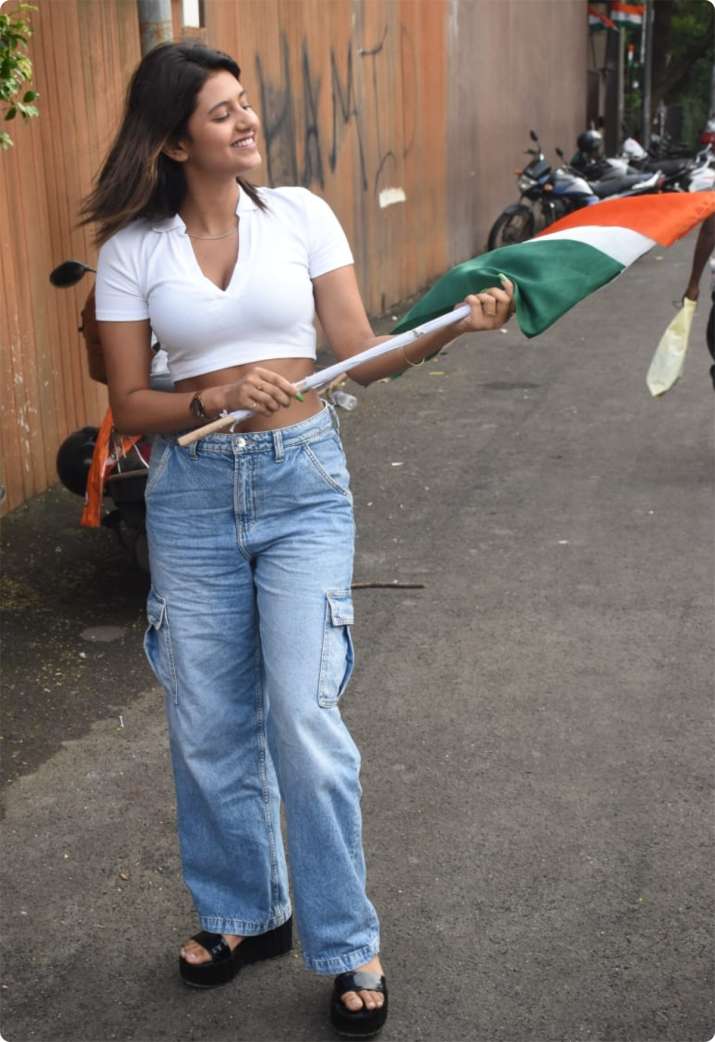How does one navigate the murky waters of privacy invasion in today's digital age? The internet, with all its marvels, has also become a breeding ground for leaks and controversies that can irreparably harm reputations. Anjali Arora's case is a stark reminder of how vulnerable personal information can be once it enters cyberspace. A private video intended solely for her eyes was leaked, setting off a chain reaction of events that thrust her into unwanted limelight.
Anjali Arora, known for her work in the entertainment industry, found herself at the center of an online storm when a private video surfaced on social media platforms. This incident not only violated her privacy but also sparked widespread discussions about consent, victim-blaming, and the ethical responsibilities of content creators and consumers. As details unfolded, the conversation expanded beyond just the leak itself to encompass broader societal issues surrounding digital privacy.
| Personal Information | Details |
|---|---|
| Name | Anjali Arora |
| Date of Birth | March 12, 1990 |
| Place of Birth | New Delhi, India |
| Career | Actress, Model, Content Creator |
| Education | Bachelor’s Degree in Mass Communication |
| Awards & Recognitions | Best Newcomer Award (Tellywood Awards) |
| Professional Website | Koimoi |
The fallout from the leak was immediate and severe. Anjali faced relentless scrutiny from both fans and critics alike. Despite being a consenting adult in the original recording, she became the target of intense public backlash. In response, she took legal action by filing a defamation case against those responsible for circulating the video without her permission. Her decision to pursue justice highlighted the importance of holding accountable individuals who exploit others' vulnerabilities for personal gain.
Uorfi Javed, another prominent figure in Indian television, publicly supported Anjali during this challenging time. Uorfi condemned the culture of victim-blaming prevalent in society, emphasizing the need for empathy and understanding toward victims of such breaches. She criticized the tendency among some segments of the population to blame women rather than addressing the root causes of these incidents. Uorfi's stance resonated with many, sparking further dialogue about gender dynamics within digital spaces.
As investigations progressed, authorities discovered that the video had been morphed before being disseminated widely across various platforms. This revelation added another layer of complexity to the situation, underscoring the dangers posed by deepfake technology. Experts warned that advancements in AI could make distinguishing between authentic and fabricated content increasingly difficult, thereby exacerbating existing challenges related to misinformation and privacy violations.
In interviews following the controversy, Anjali spoke candidly about her experiences post-leak. She expressed frustration over how quickly something meant for private consumption could spiral out of control, affecting every aspect of her life. Yet, amidst adversity, she chose resilience, using her platform to advocate for stricter regulations governing data protection and user consent online. Her courage inspired countless others facing similar situations worldwide.
Meanwhile, websites hosting unauthorized copies of the video came under fire for failing to adhere to community guidelines prohibiting non-consensual pornography. Platforms like Tnaflix faced criticism for enabling distribution of explicit material without verifying authenticity or obtaining necessary permissions from parties involved. Legal experts argued that more stringent measures were needed to curb such practices moving forward.
Entertainment outlets covering the story provided updates while striving to maintain journalistic integrity. Koimoi, for instance, offered comprehensive coverage detailing developments as they unfolded. Their commitment to accurate reporting helped inform audiences about ongoing proceedings while respecting Anjali's dignity throughout the ordeal.
Looking ahead, there remains much work to be done in safeguarding individual rights in our hyper-connected world. Policymakers must collaborate closely with tech companies to develop frameworks capable of protecting users from malicious actors seeking to exploit their information. Simultaneously, educating the public about appropriate online behavior becomes crucial in fostering safer digital environments where everyone feels secure sharing aspects of their lives voluntarily.
Ultimately, Anjali Arora's experience serves as a powerful testament to the enduring strength required to overcome obstacles placed before us. By speaking truthfully about her journey, she continues inspiring hope in those navigating parallel paths filled with uncertainty yet brimming with potential for positive change.



